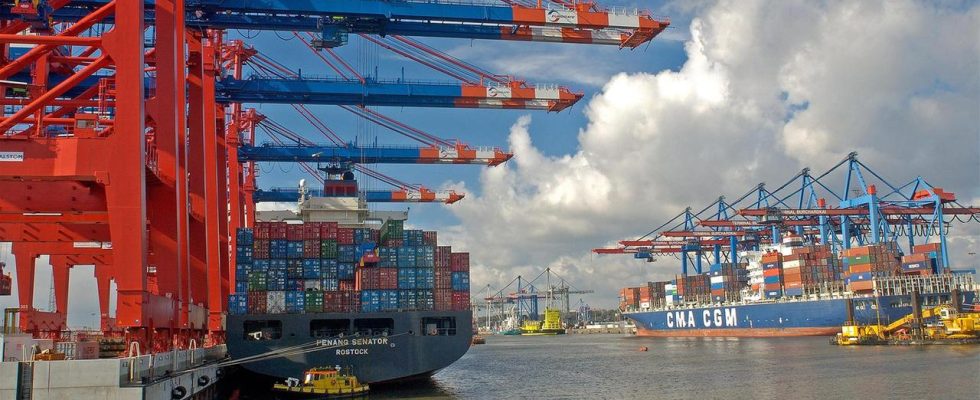A quarter of all car manufacturers still have problems getting materials and components. But the situation has improved significantly – despite attacks on merchant ships in the Red Sea.
According to the Ifo Institute, the shortage of materials in German industry has decreased significantly. In January, 12.5 percent of the companies surveyed reported bottlenecks, after 18.2 percent in October, the Munich scientists announced today.
“The attacks on merchant ships in the Red Sea are currently having no impact on the supply situation with raw materials and intermediate products,” said Klaus Wohlrabe, head of the Ifo surveys. However, due to the long transport routes, a worsening of the situation in the coming months cannot be ruled out. The recent rail strikes could also lead to bottlenecks for some companies.
Automotive manufacturing particularly affected
In the automotive industry, most companies continue to report delivery problems. Here too, their share fell from 36.8 percent in October to 26 percent. According to ifo, the figure is 18.9 percent each for manufacturers of electrical equipment and mechanical engineering. In the majority of industries the value is less than ten percent.
“Beverage manufacturers (0 percent), the food industry (1.2 percent), the paper industry (1.1 percent) and metal production and processing (1.6 percent) are almost worry-free,” according to the survey results. The peak of delivery problems in the industry was in December 2021, when 81.9 percent of companies complained about them.
This was primarily a consequence of the global Corona crisis. Since then, many companies have tried to broaden their supply chains and reduce dependencies, for example on imports from China.
Trade association does not expect major bottlenecks
Nevertheless, the attacks in the Red Sea do not go unnoticed by companies. The car manufacturer Tesla temporarily stopped production at its factory in Grünheide, Brandenburg. The company said that because transport routes had shifted, a gap had arisen in the supply chains. “Due to missing components, we are therefore forced to suspend vehicle production in the Gigafactory Berlin-Brandenburg with the exception of a few areas between January 29th and February 11th,” it said in a statement.
Recently, other companies, including the Chinese car manufacturer Geely and the furniture store Ikea, also warned of delays in deliveries.
The German trade association, on the other hand, does not expect major bottlenecks in retail due to the tense situation in the region. Companies have set up their supply chains more broadly. “This includes different procurement areas, increased warehousing or alternative products for needs,” said Stefan Genth, general manager of the trade association.

